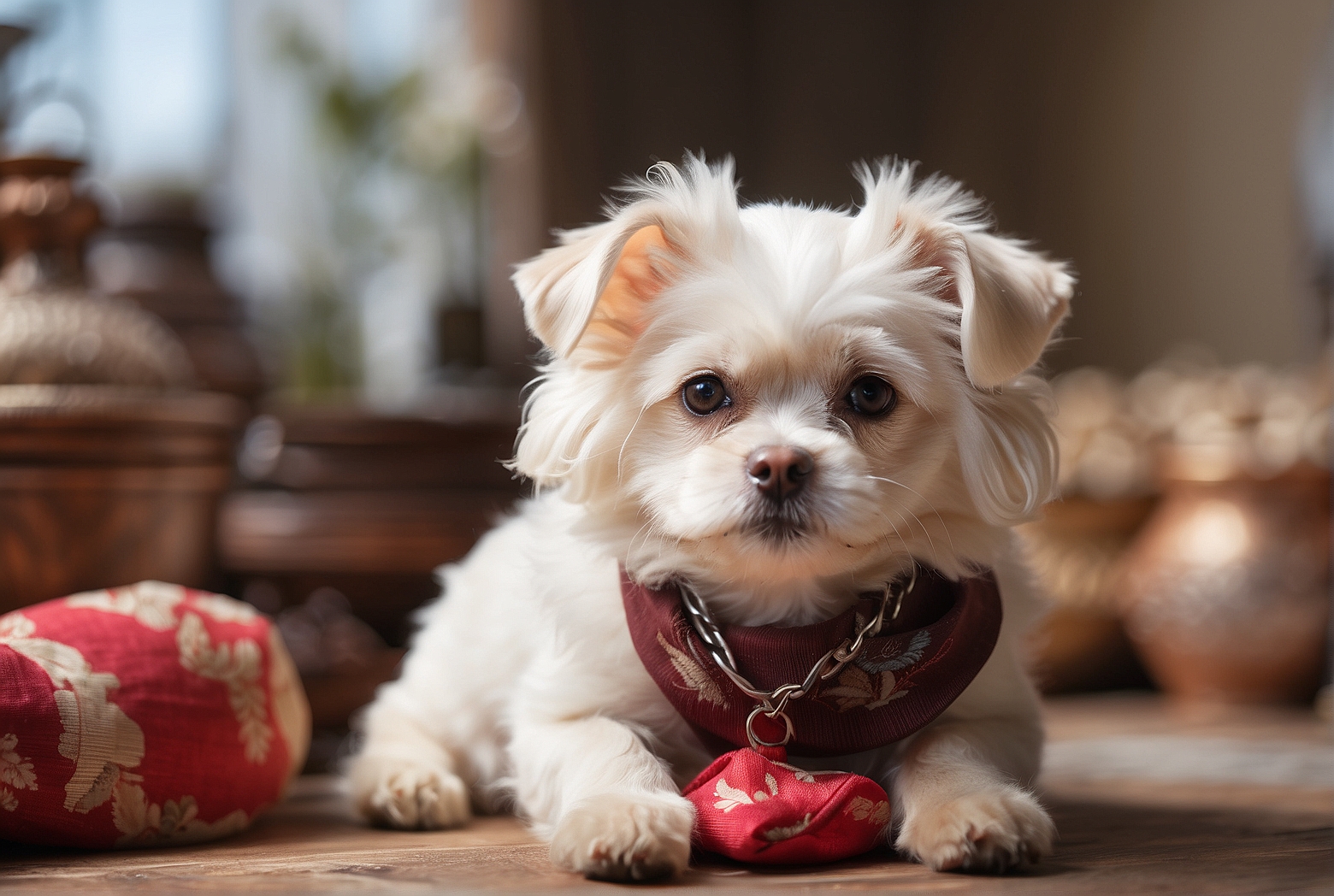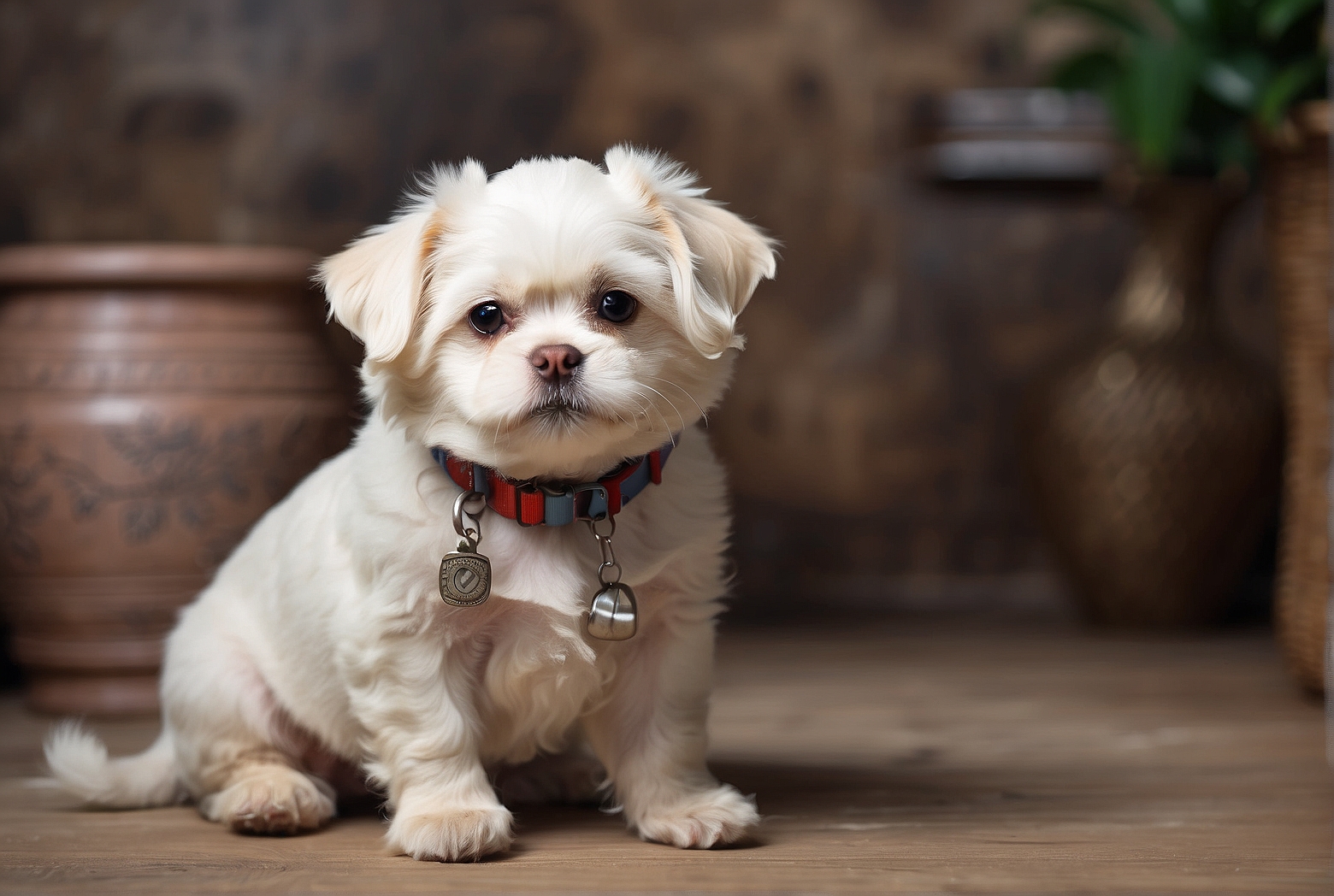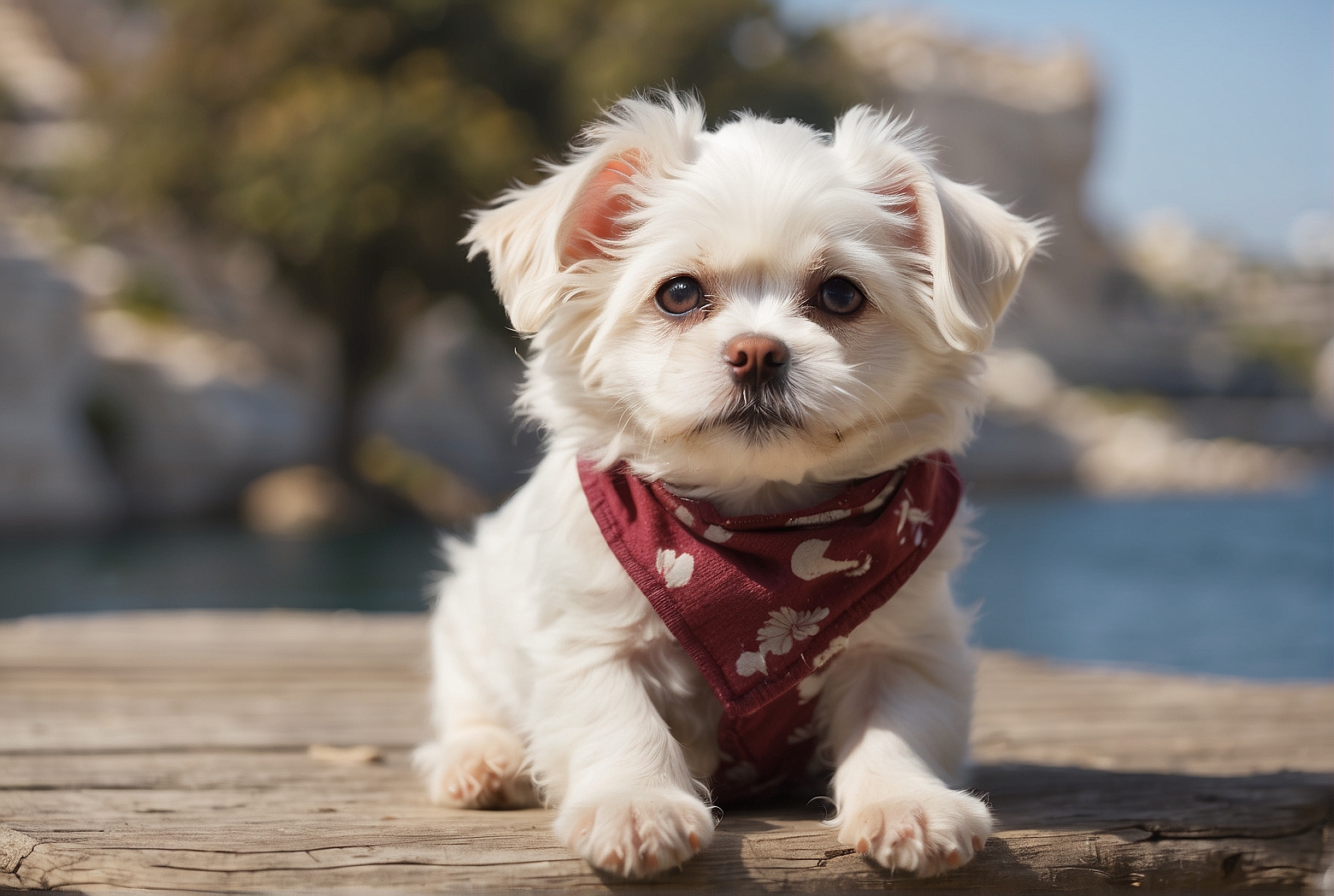If you’re a first-time Maltese owner, congratulations! You’ve chosen a delightful breed that brings charm and joy into any home. Whether you’ve recently brought a Maltese puppy into your life or are considering doing so, this article will provide you with essential tips to ensure a smooth and happy journey with your new furry friend. From grooming advice to socialization tips, we’ve got you covered on everything you need to know as a first-time Maltese owner. So, get ready to embark on an adventure filled with love, laughter, and lots of tail-wagging!
Preparing for a Maltese
Researching Maltese Breed
Before bringing a Maltese into your home, it is important to do thorough research on the breed. Learn about their characteristics, temperament, and any specific care needs they may have. Maltese dogs are known for their friendly and affectionate nature, but they can also be prone to certain health issues. Understanding these factors will help you determine if a Maltese is the right fit for you and your lifestyle.
Creating a Suitable Living Environment
Creating a suitable living environment for your Maltese is essential for their overall well-being. Maltese dogs are small in size, making them well-suited for apartment living. However, they still need space to move around and play. Ensure that you have enough room for them to explore and provide them with a comfortable bed or crate where they can rest. Additionally, make sure to keep your living space clean and free of hazards, as Maltese dogs can be prone to accidents.
Gathering Essential Supplies
Before bringing your Maltese home, it is important to gather all the essential supplies they will need. This includes food and water bowls, high-quality dog food suitable for small breeds, a leash and collar, a comfortable bed or crate, toys for mental stimulation, grooming tools, and any necessary medications or supplements as recommended by your vet. By having these supplies ready, you can ensure that your Maltese has everything they need to thrive in their new home.
Health and Care
Regular Veterinary Checkups
Regular veterinary checkups are crucial for maintaining the health of your Maltese. Schedule routine visits with a trusted veterinarian to ensure that your pup receives necessary vaccinations, parasite prevention, and overall wellness examinations. Your vet will also be able to detect any potential health issues early on, allowing for prompt treatment. Additionally, make sure to keep up with your Maltese’s dental care, as they can be prone to dental issues. Regular teeth brushing and dental cleanings can help prevent dental disease.
Nutritional Needs
Providing your Maltese with a balanced and nutrient-rich diet is essential for their overall health and well-being. Opt for high-quality dog food formulated for small breeds, and consult with your vet to determine the appropriate portion sizes for your pup. Avoid overfeeding, as Maltese dogs can easily become overweight, which can lead to health issues. Additionally, be mindful of any food allergies or sensitivities your Maltese may have, and avoid feeding them any harmful foods such as chocolate, onions, grapes, or raisins.

Grooming Requirements
Maltese dogs have a long, silky coat that requires regular grooming to keep it looking its best. Daily brushing is recommended to prevent tangles and mats. You may also consider scheduling regular professional grooming appointments to maintain their coat’s cleanliness and manage their hair length. Additionally, it is important to keep your Maltese’s ears clean and free from infection, as they are prone to ear issues. Regularly check and clean their ears as part of their grooming routine.
Exercise and Mental Stimulation
Despite their small size, Maltese dogs still need regular exercise and mental stimulation to stay happy and healthy. Aim for at least 30 minutes to an hour of exercise each day, which can include walks, playtime in a fenced yard, or interactive games indoors. Mental stimulation is also important for this intelligent breed. Provide them with puzzle toys, interactive feeders, and training sessions to keep their mind engaged. This will help prevent boredom and destructive behaviors.
Training and Socialization
Basic Obedience Training
Training is an essential part of being a responsible Maltese owner. Start with basic obedience training, such as teaching your Maltese to sit, stay, come, and walk on a leash. Use positive reinforcement techniques, such as treats and praise, to reward good behavior. Consistency and patience are key when training a Maltese, as they can be sensitive dogs. Consider enrolling in obedience classes or working with a professional trainer if you need guidance or assistance.
Housebreaking
Housebreaking a Maltese may take some time and consistency, but with patience and positive reinforcement, it can be achieved. Establish a regular feeding and potty schedule for your pup and take them outside frequently, especially after meals and naps. When your Maltese eliminates in the appropriate spot, reward them with praise and treats. Accidents are bound to happen during the housebreaking process, so it is important to remain calm and avoid punishing your dog.
Socializing with Humans
Socializing your Maltese with different people from a young age is crucial to ensure they become well-rounded and friendly adult dogs. Expose your pup to various environments, sounds, and situations, and encourage positive interactions with strangers. Invite friends and family members to interact with your Maltese, always ensuring that the experiences are positive and stress-free. This will help your Maltese become comfortable around new people and reduce the likelihood of fear-based behaviors.
Socializing with Other Dogs
Properly socializing your Maltese with other dogs is important to prevent fear or aggression towards their canine counterparts. Introduce your pup to well-behaved and vaccinated dogs in a controlled and supervised environment. Allow them to interact and play, observing their body language for signs of stress or discomfort. Gradually expose your Maltese to different dogs of various sizes and personalities, ensuring positive experiences, and always prioritizing their safety.

Handling Behavioral Challenges
Separation Anxiety
Some Maltese dogs can experience separation anxiety when left alone, which may result in destructive behavior or excessive barking. To manage separation anxiety, gradually accustom your Maltese to being alone by leaving them for short periods and gradually increasing the duration. Provide them with mental stimulation toys, like puzzle feeders, to keep them occupied. Consider using calming aids, such as pheromone diffusers or anxiety wraps, and consult with a professional trainer or behaviorist if the issue persists.
Excessive Barking
Maltese dogs are known for their vocal nature and may bark excessively if not properly trained and stimulated. Address excessive barking by identifying the triggers and providing appropriate outlets for their energy and mental stimulation. Engage in regular exercise and play sessions to tire them out, and redirect their barking behavior by providing alternative commands or distractions. Consistency and positive reinforcement are key when training a Maltese to control their barking.
Aggression
Aggression can be a challenging behavior to address in any dog, including Maltese. If your Maltese displays aggression towards humans or other animals, seek professional help from a certified behaviorist or trainer experienced in dealing with aggression. They can help identify the underlying causes and develop a training plan tailored to your dog’s needs. Avoid punishment-based training methods, as they can exacerbate aggressive tendencies and cause further behavioral issues.
Fear and Phobias
Some Maltese dogs may develop fears and phobias towards certain situations or stimuli. Common fears include loud noises, unfamiliar environments, or specific objects. Help your Maltese overcome their fears by gradually exposing them to these triggers in a controlled and positive manner. Use treats and praise to reward calm behavior and create positive associations. It is important to remain patient and understanding, supporting your Maltese through their anxieties rather than reinforcing them.
Establishing a Routine
Daily Feeding Schedule
Establishing a consistent daily feeding schedule is important for maintaining your Maltese’s overall health and preventing overeating. Divide their daily food portion into two or three meals, spaced throughout the day. Follow the feeding guidelines provided by your vet or the dog food manufacturer, adjusting portion sizes based on your Maltese’s age, activity level, and overall health. Stick to the same feeding times to help regulate their digestion and encourage a healthy appetite.
Walking and Exercise Schedule
Regular exercise is vital for keeping your Maltese physically and mentally stimulated. Create a walking and exercise schedule that includes daily walks, interactive play sessions, and mental enrichment activities. Aim for at least 30 minutes to an hour of exercise each day, but be mindful of your Maltese’s energy levels and adjust accordingly. Additionally, make sure to consider the weather conditions and avoid exercising your Maltese during extreme heat or cold.
Grooming Routine
A consistent grooming routine is necessary to keep your Maltese’s coat healthy and free from tangles and mats. Set aside time for daily brushing using a brush or comb suitable for their coat type. This will prevent their fur from becoming matted and reduce the risk of skin infections. Additionally, schedule regular professional grooming appointments to maintain their coat length, trim their nails, and clean their ears. Follow your vet or groomer’s recommendations for frequency.
Creating a Safe Environment
Pet-Proof Your Home
Before welcoming a Maltese into your home, it is important to ensure that the environment is safe for them. Pet-proof your home by securing any potentially hazardous areas, such as blocking off stairs or putting up baby gates. Keep toxic plants, medications, chemicals, and small objects out of your Maltese’s reach. Additionally, secure loose cords or cables that your pup could chew on, and consider using childproof latches on cabinets where cleaning supplies or other dangers may be stored.
Avoid Harmful Foods and Substances
Certain foods and substances can be harmful or even toxic to your Maltese. Avoid feeding them foods such as chocolate, grapes, raisins, onions, garlic, and anything containing xylitol. These can cause various health issues ranging from digestive upset to organ failure. Additionally, keep household chemicals, medications, and toxic plants out of your Maltese’s reach. Be proactive in educating yourself about potential hazards and take necessary precautions to keep your Maltese safe.
Provide Adequate Supervision
Providing adequate supervision is crucial to ensure your Maltese’s safety and prevent accidents or injuries. Supervise your pup when they are roaming freely in your home or yard, particularly if they are prone to chewing or getting into mischief. Avoid leaving them unsupervised in potentially dangerous situations, such as when interacting with children or unfamiliar dogs. By being attentive and present, you can promptly address any potential hazards or behaviors that may pose a risk to your Maltese.
Secure Fencing or Enclosures
If you have outdoor space for your Maltese to explore, it is important to have secure fencing or enclosures to prevent them from wandering off or encountering potential dangers. Ensure that your fences are tall enough to prevent them from jumping over and that the gaps are narrow enough to prevent them from squeezing through. Regularly check for any signs of damage or openings in the fences to maintain the security of your outdoor space.
Building a Strong Bond
Spend Quality Time Together
Building a strong bond with your Maltese requires spending quality time together. Set aside dedicated time each day for one-on-one interaction, such as cuddling, petting, or playing. Engage in activities that your Maltese enjoys, whether it’s fetch, hide-and-seek, or learning new tricks. This quality time will help strengthen your bond and build trust between you and your furry companion.
Engage in Interactive Play
Interactive play is a fun and effective way to bond with your Maltese while providing both physical and mental stimulation. Use toys that encourage active participation from your pup, such as puzzle toys, treat-dispensing toys, or interactive fetch toys. These will engage your Maltese’s natural instincts and keep them entertained. Rotate the toys regularly to maintain their interest and prevent boredom.
Positive Reinforcement
Positive reinforcement is key to training and building a strong bond with your Maltese. Use praise, treats, and rewards to reinforce good behavior and obedience. Avoid punishment or harsh training methods, as this can damage trust and hinder the bond between you and your dog. Positive reinforcement creates a positive association with training and reinforces the idea that good behavior is rewarded, strengthening your bond with your Maltese.
Understanding Your Maltese’s Body Language
Understanding your Maltese’s body language is essential for effective communication and building trust. Learn to recognize signs of stress, fear, excitement, or contentment. Observe their posture, tail position, ear position, and facial expressions. This will help you better understand their emotions and respond appropriately. By respecting and responding to your Maltese’s needs and boundaries, you can strengthen your bond and create a harmonious relationship.
Health Issues to Watch For
Dental Health
Maltese dogs are prone to dental issues, such as gum disease and tooth decay. Establishing a dental care routine early on is crucial to prevent oral health problems. Regularly brush your Maltese’s teeth using a dog-friendly toothbrush and toothpaste recommended by your vet. In addition, provide them with dental treats or toys designed to promote oral hygiene. Regular professional dental cleanings may also be necessary to maintain your Maltese’s dental health.
Eye and Tear Stain Problems
Maltese dogs are known for their beautiful eyes, but they can be prone to tear stains and eye infections. Keep your Maltese’s eyes clean and free from debris by gently wiping them with a damp cloth or using dog-safe eye wipes. If tear staining becomes excessive, consult with your vet to rule out any underlying health issues. Regular veterinary checkups are important for monitoring your Maltese’s eye health and addressing any concerns.
Allergies
Maltese dogs can be prone to allergies, both environmental and food-related. Keep an eye out for symptoms such as itching, redness, excessive paw licking, ear infections, or gastrointestinal issues. If you suspect your Maltese has allergies, consult with your vet for proper diagnosis and management. They may recommend allergy testing and prescribe medication or dietary changes to alleviate your Maltese’s discomfort.
Luxating Patella
Luxating patella, a condition where the kneecap dislocates or moves out of place, can occur in Maltese dogs. Watch for signs such as limping, difficulty in walking or running, or reluctance to put weight on a leg. If you notice any of these symptoms, it is important to consult with your vet for a proper diagnosis and treatment plan. In some cases, surgical intervention may be necessary to correct the issue and improve your Maltese’s mobility.
Socializing and Exposing Your Maltese
Introducing to New Environments
Introducing your Maltese to new environments is important to broaden their experiences and socialization. Gradually expose them to different places such as parks, cafes, or shopping centers. Start with quieter and less crowded locations and gradually work your way up to busier environments. Always prioritize your Maltese’s comfort and observe their body language for signs of stress or fear. Provide positive reinforcement and rewards when they exhibit calm and confident behavior in new environments.
Meeting New People and Animals
Socializing your Maltese with new people and animals is essential for their social development. Introduce them to different individuals of various ages, genders, and appearances, always ensuring that the interactions are positive and stress-free. Allow your Maltese to approach at their own pace and reward them for friendly behavior. When introducing them to other animals, ensure proper supervision and choose well-behaved and vaccinated dogs for positive and safe interactions.
Handling Various Situations
Exposing your Maltese to various situations will help them become adaptable and confident dogs. Introduce them to different sounds, such as vacuum cleaners, doorbells, or fireworks, gradually increasing the volume over time. Teach them to be comfortable with handling, including grooming, nail trimming, and teeth brushing. Regularly practice walking on different surfaces, such as grass, sand, or pavement, to help them adjust to different textures. By gradually exposing your Maltese to different situations, you can help them navigate the world with ease.
Traveling with Your Maltese
Preparing for Trips
When traveling with your Maltese, it is important to properly prepare to ensure their safety and comfort. Pack all the necessary supplies, including food, water, bowls, medications, leash, collar with identification tags, and any comfort items or bedding. If traveling by car, secure your Maltese in a crate or use a seat belt harness to prevent injury in case of sudden stops or accidents. If flying, familiarize yourself with the airline’s requirements for pet travel and ensure that your Maltese has a comfortable and airline-approved carrier.
Safety Measures
Maintaining safety measures while traveling with your Maltese is crucial. Never leave your dog unattended in a vehicle, as extreme temperatures can quickly become life-threatening. Ensure that your Maltese is properly secured while driving to prevent distraction and potential accidents. Keep them on a leash and under your control when exploring new environments to prevent them from wandering off or encountering dangerous situations. By prioritizing their safety, you can enjoy traveling with your Maltese while maintaining peace of mind.
Traveling Essentials
When traveling with your Maltese, certain essentials should not be forgotten. Pack enough food and water for the duration of your trip, as sudden changes in diet can cause digestive upset. Bring along their familiar bedding or blanket to provide a sense of comfort and familiarity. Don’t forget to carry any necessary medications or supplements, as well as waste bags for clean-up during walks. Consider having your Maltese wear a tag with your contact information in case they get lost. Being prepared with these essentials ensures a comfortable and stress-free trip for your Maltese.
By following these guidelines, you can ensure that both you and your Maltese have a happy and fulfilling life together. Remember to provide proper care, socialization, and training to foster a strong bond with your new furry friend. With love, patience, and a friendly approach, you will be well on your way to being a responsible and devoted Maltese owner.
